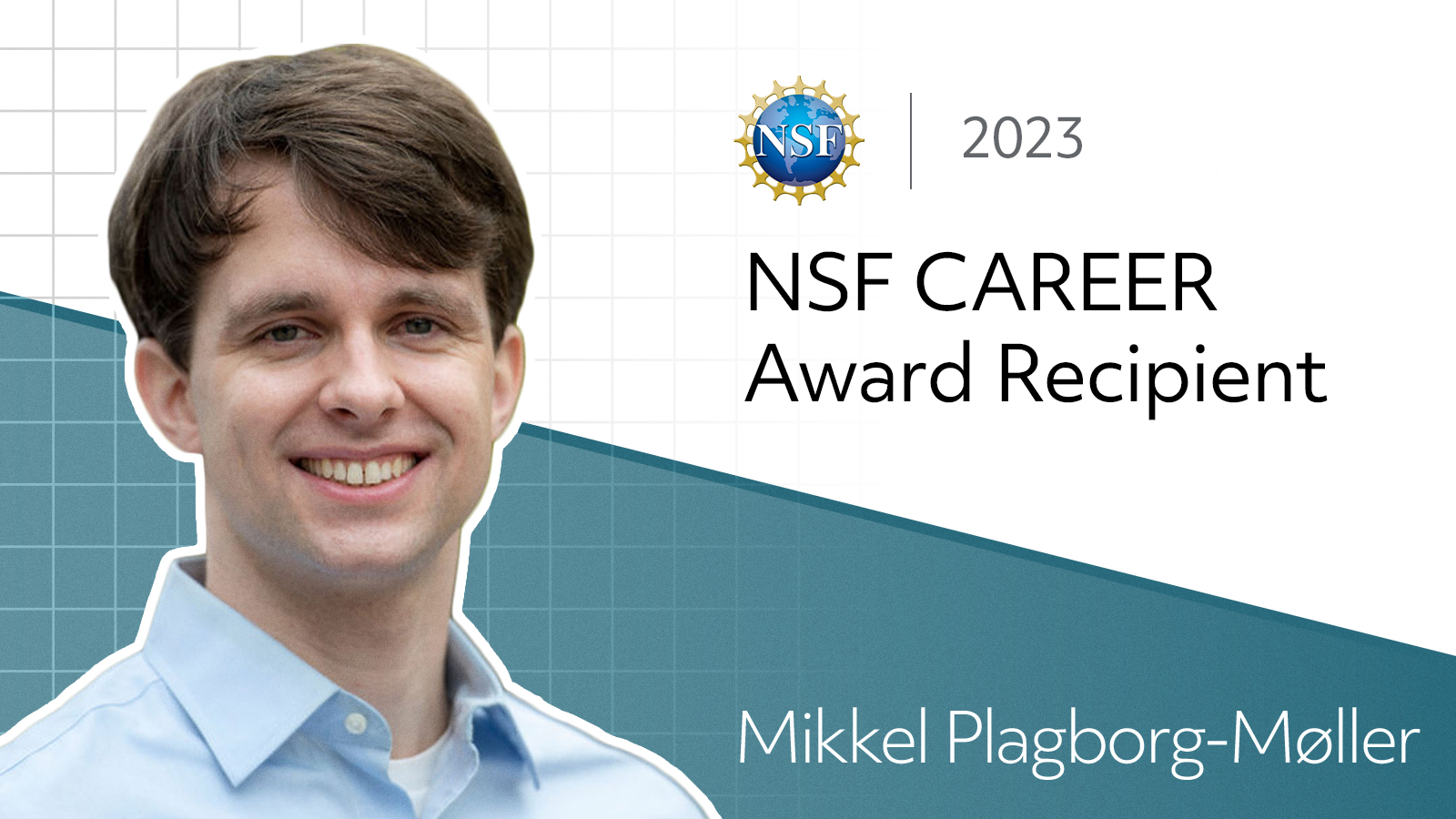Mikkel Plagborg-Møller awarded NSF CAREER Award to study statistical methods used for research on inequality

The Economics Department at Princeton is excited to announce that Assistant Professor of Economics Mikkel Plagborg-Møller has been awarded an NSF CAREER Award to support his research in econometrics and the statistical methods used to study inequality. The Faculty Early Career Development (CAREER) Program, managed by the National Science Foundation, supports “early-career faculty who have the potential to serve as academic role models in research and education and to lead advances in the mission of their department or organization.”
Ellora Derenoncourt—Assistant Professor of Economics at Princeton who studies economic history, labor economics, and public economics—also received a 2023 CAREER Award.
Plagborg-Møller, who joined Princeton in 2017, earned his Ph.D. from Harvard University in 2016. Before joining the faculty at Princeton, he completed a postdoctoral research fellowship at Harvard. He also served as a visiting scholar at NYU’s Department of Economics from 2019-2020. In addition to the CAREER Award, Plagborg-Møller received one of this year’s Sloan Fellowships for early career researchers. Sloan Research Fellows are selected annually by the Alfred P. Sloan Foundation to represent the next generation of scientific leaders in the United States and Canada.
Four projects to improve methods for studying links between inequality and economic activity
The CAREER Award will support four of Plagborg-Møller’s ongoing research projects.
The first project develops an inference procedure with formal coverage guarantees for visualizing multi-dimensional cross-sectional heterogeneity, such as heterogeneity in dynamic response profiles across groups of households or firms. The second project provides a causal reinterpretation of popular methods for estimating temporal heterogeneity and nonlinearities in time series data, such as state- or sign-dependence of impulse responses.
Recognizing the vast heterogeneity in data sets faced by empirical researchers, the third project runs a large-scale simulation study of impulse response estimators and provides quantitative recommendations on how to choose between the many available procedures.
Finally, the fourth project will develop a collection of interactive educational materials, designed for graduate students and applied researchers, on modern macroeconometric methods. These modular lessons will be open source and made freely available in a GitHub repository, allowing continual engagement with the community of researchers and educators in academia and policy institutions.
More information about the award can be found here.